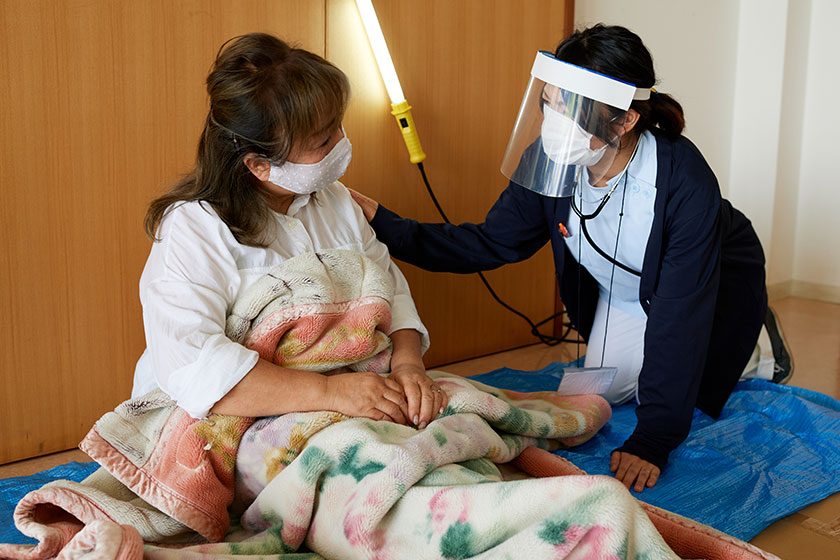As floods may hit Pennsylvania with hardly any early hints, it is vital for seniors with chronic illnesses to prepare in advance. Here are tips to help seniors prepare for floods in Allentown, PA.
Flood Preparation Tips for Senior Folks
As floods may hit Pennsylvania with no early signs, it’s essential for seniors with chronic illnesses to prepare ahead. As reported by the CDC, chronic illnesses may deteriorate due to shortages in water and food, severe cold or heat, anxiety, or exposure to a weather hazard.
Supposing you or your senior family members are more susceptible to hazards linked to floods, here are a few actions you can take for heightened protection.
#1 – Plan in advance. Do you need to escape? Begin with a google search of your district title or the term “flood evacuation zones” to discover if you reside within an evacuation zone. Certain websites have online tools to search for zones near your location.
#2 – Gather some emergency supplies. If you weather storms from home, you require a minimum of three days of supplies and food. As floods may hit Allentown, Pennsylvania with hardly any early hints, it’s vital for seniors with chronic illnesses to prepare in advance. If your senior kin are susceptible to floods, here are some essential flood preparation tips for seniors in Allentown, PA. Your flood emergency kit should contain the following items:
- COVID-19 Vaccination Certificates
- Hygiene care supplies, including toilet paper, bacterial wipes, and hand sanitizer
- Canned food
- Traditional can opener
- Spare copies of keys
- First aid supplies
- A week’s supply of clothing
- Cards, books, chess, or other non-electronic types of games
- Flashlights, spare batteries, or torches
- Water – a gallon per individual per day
- Battery-charged or transistor radio, spare batteries on demand
- A minimum of one week of medication, medical supplies, or tools
- Sunscreen, shades, or caps
- Pet supplies, like food, bottled water, medicines, and immunization certificates
- Pocket-knives
- Whistles
- Umbrellas
If you or your family have “furry kids,” read about animal flood preparedness. When you evacuate, you might have to board your animals, as many shelters may just accept service animals.
Ensure that your bags and medical equipment, including wheelchairs, canes, or oxygen canisters, get labeled with your data.
From home, put original copies of birth and marriage certificates, deeds, Social Security Cards, Passports, etc., inside a secure safe or safety deposit vault.
Communication During a Storm
#3 – Fixed conference areas. Organize fixed conference areas, like places beyond your neighborhood, when you cannot get indoors.
Print out the telephone numbers and get close family or community members who might help as your contact agent.
#4 – Observe nursing demands. When you have some close kin who might require help in a storm, complete and download a nursing emergency preparation kit and keep it close by. The documentation may get delivered to shelters when and if your kin is hospitalized.
#5 – Observe current affairs. Read up on how authorities may provide data to residents. Access all advanced registration databases in your district for those who require more help in emergencies. Resources are:
- Department of homeland security alerts
- Stay on high alert when a storm may occur
- Download the FEMA application
- NOAA weather radio/All-Hazard alert radio
#6 – Try some respite living. If you’re worried about your security or the welfare of your kin in the event of a flood, try some respite living in an assisted living community. Senior communities in Pennsylvania hold very detailed flood safety protocols established, which may shield your family from danger.







